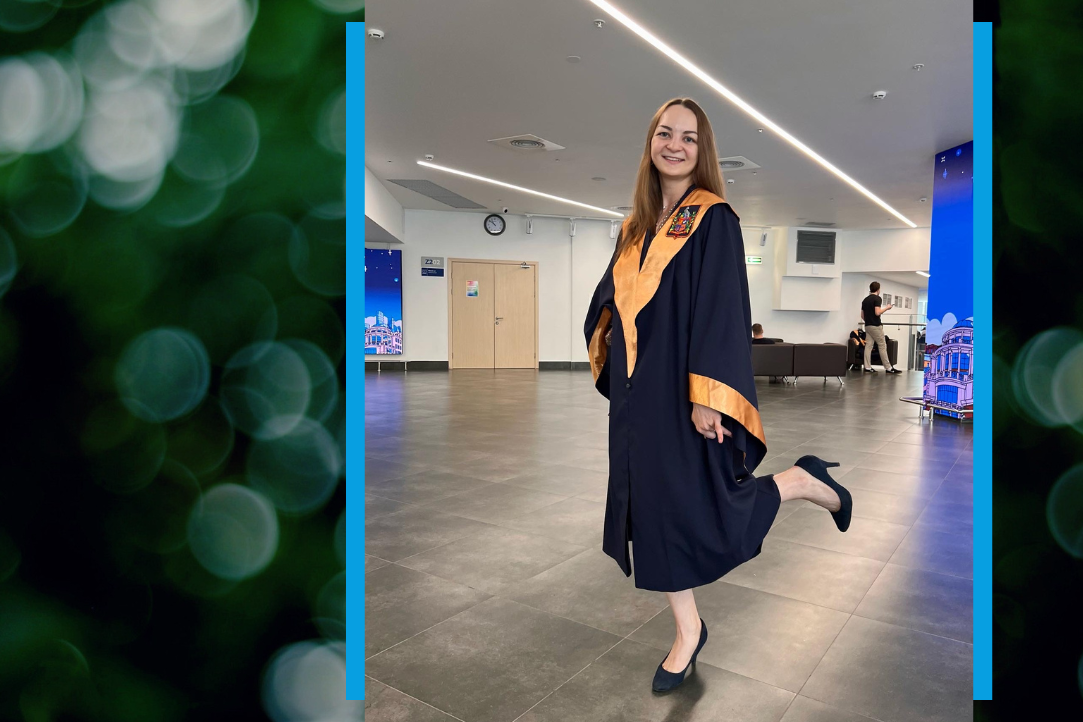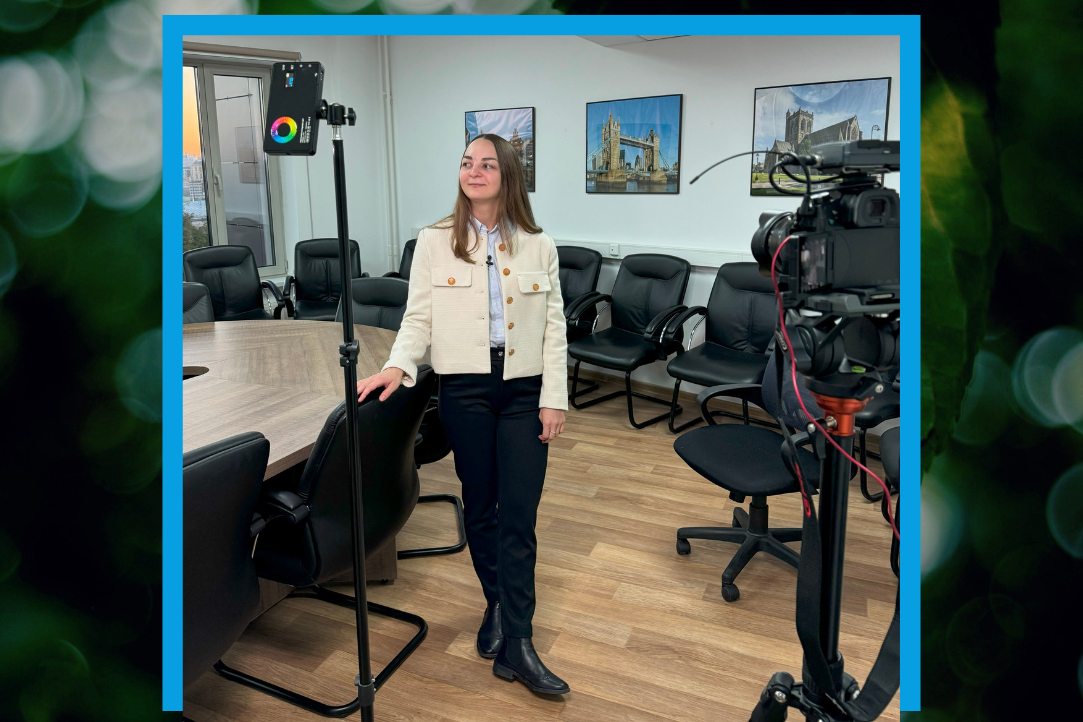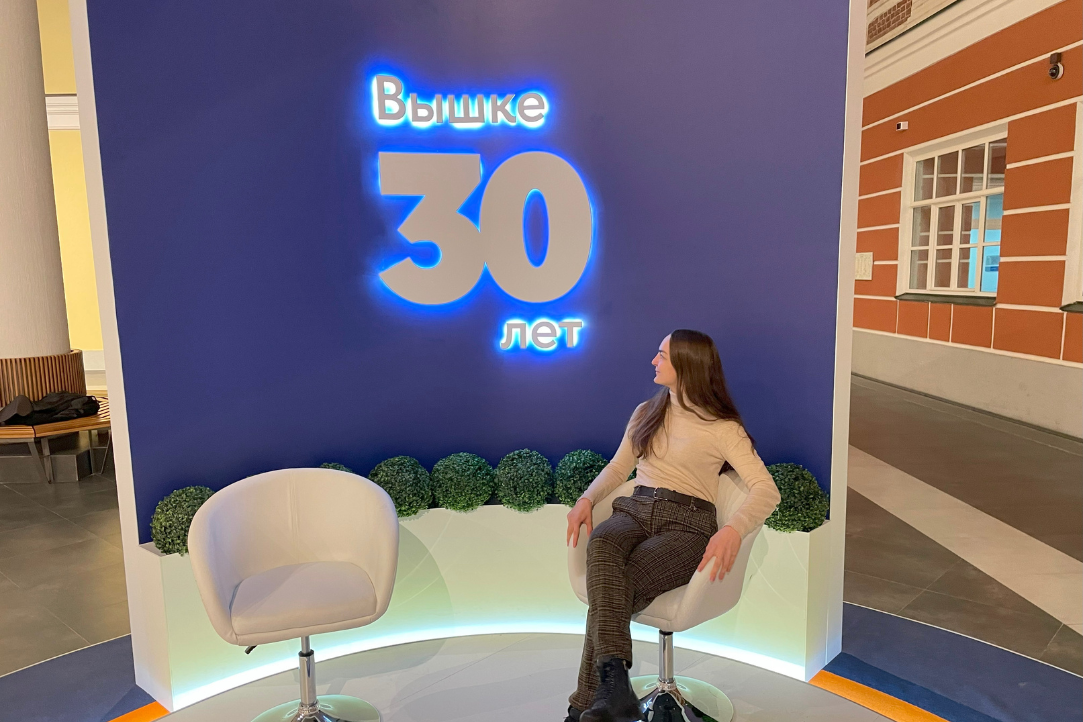Maria Silkina: ICEF Is About Challenge, Demanding Study, and Enriching Communication

Here’s how Maria manages it all, why she chose to do a master’s, who she looks up to and where she sees herself professionally.
Maria, is having a master’s really useful? Why did you choose to enroll in ICEF after completing your bachelor's study at HSE Faculty of Economics?
It’d taken me some time to work out if I needed a master’s, to be honest... The deciding factor for me was the webinar by Victoria Pralich, a specialist in business education and manager of ICEF Career Services. She provided a convincing account of how a master’s from ICEF can benefit one’s career progress.
Finally, I thought, “If I am to spend another two years studying, it’s got to be a productive time with enough challenge and experience, otherwise it’s just a waste of time.”
My missing puzzle piece was finally there: this master’s degree is my chance to find out what it’s like to be an ICEF student. I have always wanted to get here. ICEF is about challenge, demanding study scheme, and valuable community. I am glad I took this challenge and am now a part of ICEF.

Not only did you manage to get into ICEF, you are its number one. And you also manage to combine your study with a demanding job and campus life. Is there a secret to excelling at ICEF, a college of high academic rigour?
I can’t say it was my goal to top the rating. It’s more a product of my staying committed and my ability to learn, which I developed over time and thanks to my unwavering self-discipline. As someone who juggles study with work, I have to plan my every day very carefully and approach my duties in the most effective way.
This master’s programme is very demanding. There’s one or more home assignments to be done every week alongside classes. And there are tests to sit every month, as well end-of-module examinations.
My day is all study and work with incessant deadlines, a so-called ‘marathon of deadlines’. But my colleagues don’t mind me working flexible hours and I am very grateful to them for this.

How relevant is your master’s study for your current job at the Moscow Exchange Derivatives Market? Which courses have proven to be most useful in terms of skills needed in your workplace?
I enjoy exploring the design of the financial instruments and how they work and get valuated. It has a direct connection to my current financial market job. The courses that I learned at ICEF have been very useful shaping a holistic picture of the relationships on the financial markets.
This is my third year on the Moscow Exchange Derivatives Market. My team are working on exchange-traded derivatives – futures and options. My role there is to promote few select product groups by raising their liquidity and attracting clients to trade them. This is a multifaceted role that involves regular trading analysis, strategy development, backlog management, as well as drafting business requirements and translating them into functional specifications.
The courses that I think have proved most useful are two – Risk Management and Stochastic Calculus. The former gives a deeper insight into intuition and consequences of agents hedging, and the latter has provided some advanced derivative pricing tools.
It’s always a valuable experience to be taught by people with hands-on experience of using valuation models. And in this sense, of special importance is the course called Valuation Cases in M&A, where we learned real-world case solving.
Was there anything, apart from knowledge per se, that you gained from preparing for your exams?
I have been through more than twenty examination sessions, some truly challenging, during my years at HSE, so I’m not the one to feel nervous about an exam. The most important thing about successful exam preparation is to stay focused on what you learn throughout the semester and do all your homework. Last day exam preparation has never been my strategy. It seems to be a useless risk compared to stepwise assimilation. My strategy for learning and assimilation of material is small steps go a long way. You don’t want to get your brain overloaded.
One exam I remember best is the Econometrics exam. It was in my second year of master’s study, and since this course didn’t have an interim test its final assessment covered all the topics taught during that semester. The teacher allowed us to bring cheat sheets – A4 sheets with handwritten formulas – and it was the first time I spent 9 hours creating one. So extensive was the scope of the material covered in that course! But I think the reason I was able to mentally compartmentalize it all was because I had attended every Econometrics class that year.
Another useful aid has been the previous year question papers. Not only do they offer a good means for self-testing, they reduce stress by making it clear where you need to study hard and by making you better prepared for exam task solving.

There must be things you’ve sacrificed for college experience and job. What are they?
I try to exercise regularly. I love swimming and strength building exercises, but I always have to skip them every time I need to prepare for the exams, but resume as soon as I can.
My other passion is reading. Series like The Cat Who… by Lilian Braun are my source of distraction. I also like popular science books on human brain and emotions. One of my favorites is Adam Grant’s Think Again.

Maria, where do you see yourself in, say, five or ten years?
My plan is to do more courses after graduation and prepare for the CFA exam.
Over these six years at HSE I have developed the habit of learning, so I’m already starting to think about what to study next outside of work.
I think I’ll still be working on the financial market in the next 3 to 5 years. I very much appreciate this opportunity to contribute to its development and, hence, economy, though I know it is a long process that doesn’t yield results until years later.
Maria, I wish you every success in fulfilling your career. One last thing. What message would you give to our future master’s students? What should they be prepared for in ICEF?
My message to the future master’s students:
- if you are still procrastinating, it’s high time you stop;
- time is the most valuable thing we have. Learn to manage it effectively and treat it like your capital;
- start a job in your first year only if it offers flexible hours and you know for sure you can handle it :) My advice is try instead a part-time job on campus and leave the idea of starting a full-time job until the end of your second year;
- one of ICEF’s greatest assets is its people. Stay open, share your experience, get together to do homework, and studying will turn out less challenging and more enjoyable for you.